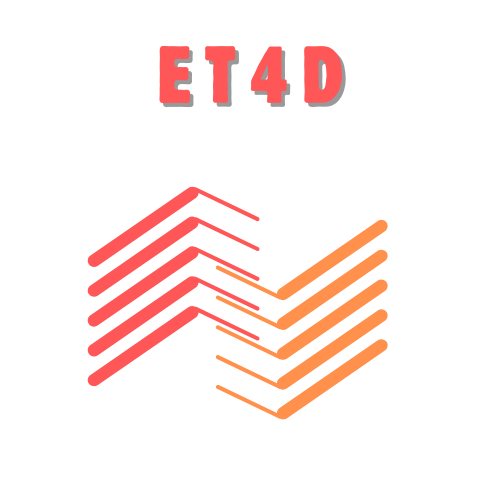
The University of Bologna recently brought the ET4D project to an international stage, presenting key highlights and results at the Digital Frontiers in Buildings and Infrastructures Conference (DFBI 2025) in Delft, Netherlands. Although the Netherlands is not one of the project's official partner countries, this marks a significant step forward as it suggests ET4D is now reaching beyond the consortium's borders, whilst adding to discussions about digitalisation in construction sector throughout Europe.
The Department of Architecture's research team demonstrated a groundbreaking educational use of a construction Digital Twin (DT) during their presentation. Based on a pilot construction site built by students from Bologna's IIPLE vocational school, it is a "Generation #1 CDT."
This technology employs Building Information Modelling (BIM), 3D scanning, IoT integration, and real-time project management tools. The team employed the open-source platform OpenProjectBIM to integrate BIM models, Work Breakdown Structures (WBS), Bills of Quantities (BOQ), and construction schedules - which ensures accessibility even to Small and Medium-sized Enterprise (SMEs).

The digital platform will enable SMEs to access digitalisation with minimal expenditure by employing well-known software applications and BIM export in standard IFC format. This is due to the fact that all BIM models and objects in the platform will be in an open format that can be explored on laptops, smartphones, or similar devices. This is a breakthrough in the digitalisation of the construction sector, particularly in the context of small and medium construction projects, which are typically conducted by SMEs.

ET4D aims to address a major issue in the construction industry by assisting SMEs overcome digital barriers such as cost, interoperability, and training. The pilot program at the University of Bologna serves as a model for future demonstrations of how open-access tools and targeted educational pathways can aid in the digital transformation. This furtherly aligns with one of the main ET4D's goal of empowering trainers and educators. Moreover, the study highlights the critical role of digital twin technologies in improving construction project management, promoting data-driven decision-making, real-time monitoring, and educational innovation.
